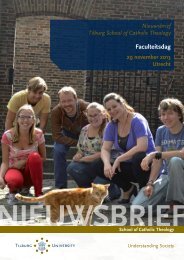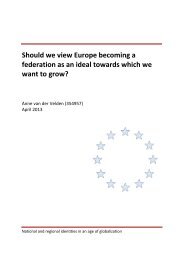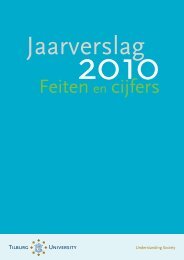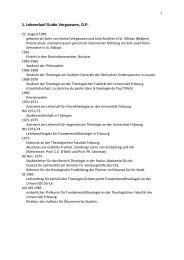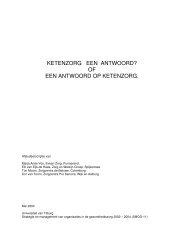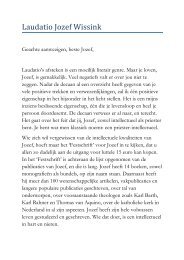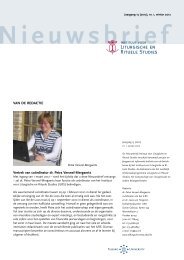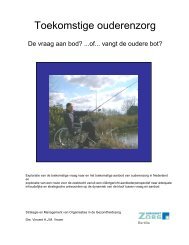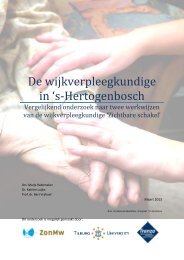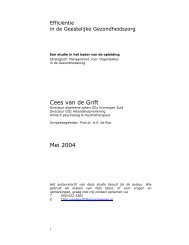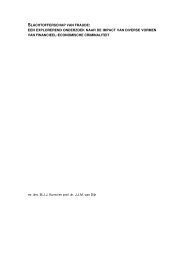Here - Tilburg University
Here - Tilburg University
Here - Tilburg University
Create successful ePaper yourself
Turn your PDF publications into a flip-book with our unique Google optimized e-Paper software.
Author and presenter<br />
Chen Shishi; <strong>University</strong> of Hong Kong<br />
Title<br />
Survey errors and fieldwork recommendation from a call back survey in Mainland<br />
China<br />
Abstract<br />
Fixed lines and mobile phones have been widely used as national<br />
telephone survey tools and there are many studies of fixed line and mobile<br />
phone survey methodology and comparing telephone surveys with other survey<br />
modes.<br />
This paper builds upon a great opportunity for methodological work on<br />
fixed line and mobile phone surveys in Mainland China, using a follow-up survey<br />
interviewing the respondents from a prior face-to-face survey. This is innovative.<br />
Understanding the challenges in fixed line and mobile phone surveys in Mainland<br />
China is a very topical issue in the field of survey research and the results can be<br />
used to study survey errors and contribute to that literature as well as to<br />
improve the quality of survey fieldwork procedures.<br />
A database with telephone contact information for 4041 individuals was<br />
obtained from a household survey in Mainland China, for which the Social<br />
Sciences Research Centre of the <strong>University</strong> of Hong Kong was commissioned to<br />
conduct a follow-up telephone survey of the same individuals. The households<br />
were sampled randomly for the first wave national face-to-face survey and the<br />
individuals are respondents who left their telephone numbers after the face-toface<br />
survey and accepted in principle a call back interview within two weeks.<br />
This paper details global telephone coverage over the past ten years and<br />
identifies the trends over time by geographical region and level of development<br />
in Mainland China, including both fixed lines and mobile phones.<br />
This paper analyzes the quality of the face-to-face database and the<br />
outcomes of the call back survey. As the demographics of respondents and nonrespondents<br />
were known from the database, studies of the influence of day,<br />
time, household demographics and individual demographics on the first and<br />
second contact attempt outcomes were undertaken using logistic regression. The<br />
findings include an effective calling design to improve telephone survey field<br />
work strategy and contribute valuable information for further studies in Mainland<br />
China.




